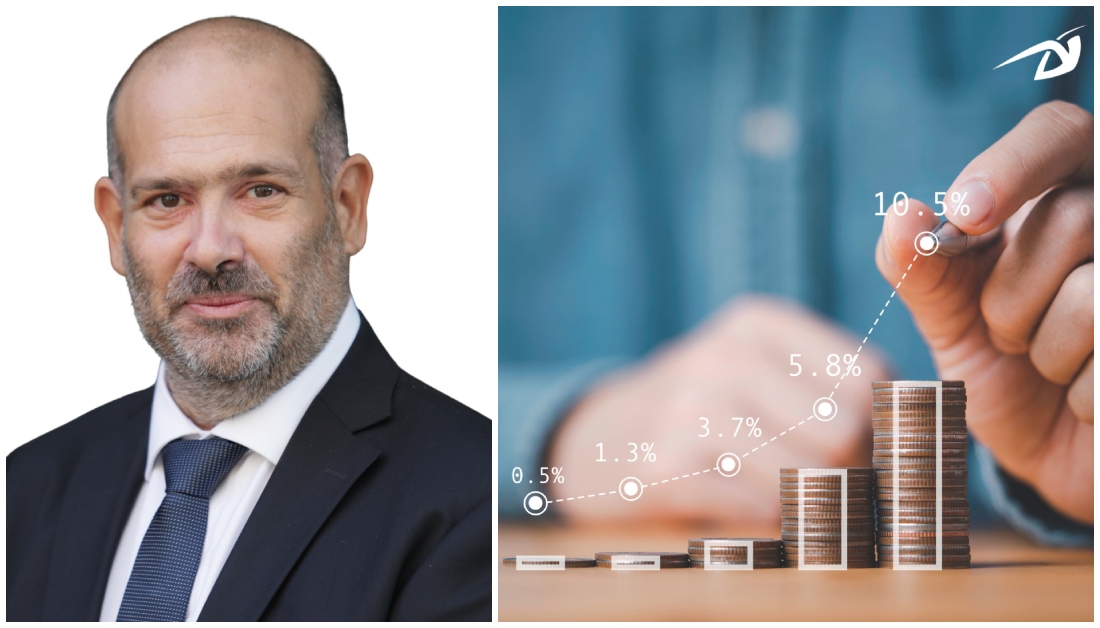Spiros Giourgas (ICAP CRIF): From Oil to Algorithms – The new engine for creating business value
By Newsroom,Spiros Giourgas
Copyright business-review

The oil industry is the best comparable industry to the data industry. Both industries rely on primary raw materials that require processing to create value. Just as oil must be refined to produce fuel, plastics and other products, data must be processed and transformed into digital information products.
By Spiros Giourgas, Executive Director – Digital & Transformation Services at ICAP CRIF
Both oil and data power are vast ecosystems. Oil is inextricably linked to transportation and industry, while data fuels innovation in technology, finance, healthcare and more. Both of these factors have historically caused global economic growth and disruption. Today, data has taken its place as the most valuable resource in the digital age. In the global data market, artificial intelligence (AI) is becoming increasingly influential and rapidly expanding.
While the global oil industry, worth nearly $9 trillion, has long led the industry’s growth, the data economy is growing rapidly, with projections that it will exceed $393 billion by 2025 and $1 trillion by 2033. Every day, businesses generate massive amounts of data through interactions with customers, supply chains and customers.
Now AI has undoubtedly become the engine driving this transformation. With tools such as machine learning, natural language processing, predictive analytics and very soon the transition to autonomous AI systems (Agentic AI), companies can now turn data into information, automate decisions and unlock entirely new business models.
AI-based task automation is replacing manual processes, with 70% of CIOs reporting that AI systems are now outperforming traditional tools. For example, in industry, predictive maintenance through AI technologies has reduced unplanned downtime by up to 30%, saving costs and increasing productivity.
Today businesses are using AI systems to personalize interactions at scale. To illustrate, over 60% of customer service interactions are managed by AI chatbots, providing faster and consistent support.
In the financial sector, where accuracy and predictability are crucial, AI has the potential to redefine the way financial institutions manage risk, in areas such as:
Credit risk assessment: AI can process vast amounts of data from transaction histories to alternative sources of information to create more targeted and dynamic risk profiles.
Management of non-performing loans (NPLs): by monitoring borrower behavior and related financial indicators, AI can identify early indications of potential default, enabling timely and proactive interventions.
Early Warning Systems (EWS): by continuously scanning data in real time, from market trends to financial news, it is possible to identify potential risks in time, enabling an immediate response.
Regulatory compliance: Automated, AI-based systems continuously monitor regulatory developments, assess their impact and ensure accurate and timely compliance, significantly reducing the need for manual processes.
Despite its potential, the adoption of AI comes with a number of challenges, where data quality is critical. AI models are only as good as the data they are trained on. Incorrect or biased data leads to incorrect results; lack of skilled personnel in AI technologies also make it difficult for companies to deploy and scale these solutions. Finally, limited infrastructure is another barrier, as the use of AI requires scalable computing power and seamless integration with existing systems.
Another key area related to AI is ethical concerns. Ensuring fairness, transparency and compliance with regulations such as GDPR is essential to building trust.
However, success with AI is not just about adopting new tools but building the right foundation. This translates into clean data, skilled teams, scalable infrastructure and a corporate culture that is ripe to embrace change.
Companies that start with small and steady steps, learn quickly and grow strategically will be in a better position to transform their data, while the implementation of autonomous AI (Agentic AI) systems offers a sustainable competitive advantage.
The journey from data to AI is not just a technical evolution but a business transformation.
At CRIF, recognizing the need for specialist knowledge in AI, we created, in 2020, CRIF InnovEcos, a global innovation hub that drives progress in financial technology through open collaboration and emerging technologies such as Genetic AI. Leveraging CRIF’s global ecosystem and more than 30 years of experience, we have already implemented several important and pioneering projects such as those mentioned above.
The InnovEcos business initiative provides practical and reliable solutions such as document automation and advanced control systems useful to banks and businesses. With initiatives such as Call4Ideas and corporate investment capital, it promotes responsible innovation and digital transformation. In the field of Genetic AI, InnovEcos is not just a hub, it is a start-up platform with a catalytic role in the continuous evolution of CRIF in the financial sector, enabling the transformation of an idea into a pilot scheme and from there the implementation of the solution on a broader scale of the organization.
So we see that we are called upon to operate in a world full of complex data, with AI being a primary tool to unlock its value, drive innovation and remain competitive. From improving credit risk models to managing NPLs and developing early warning systems, AI is reshaping the way businesses operate and make decisions.



